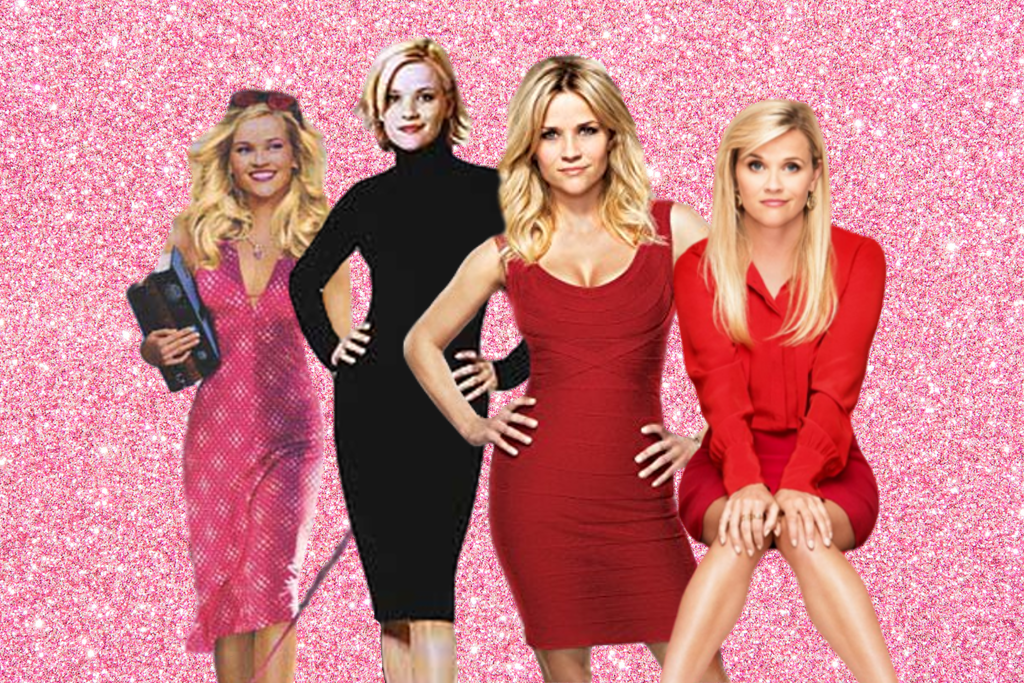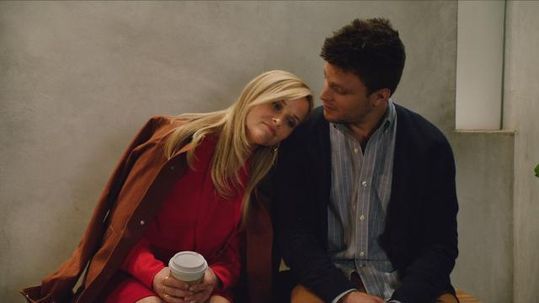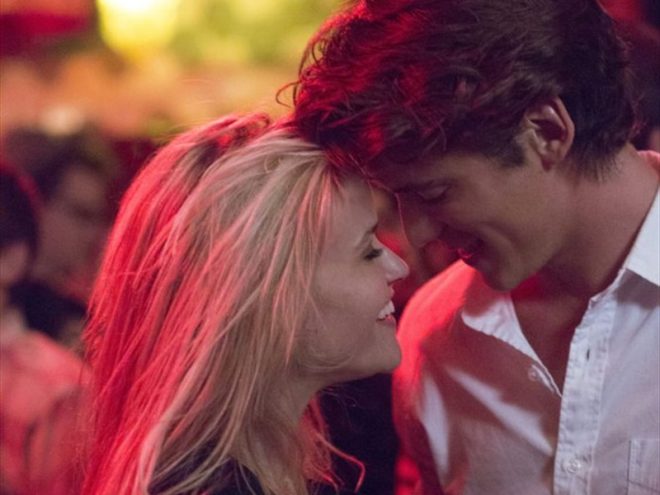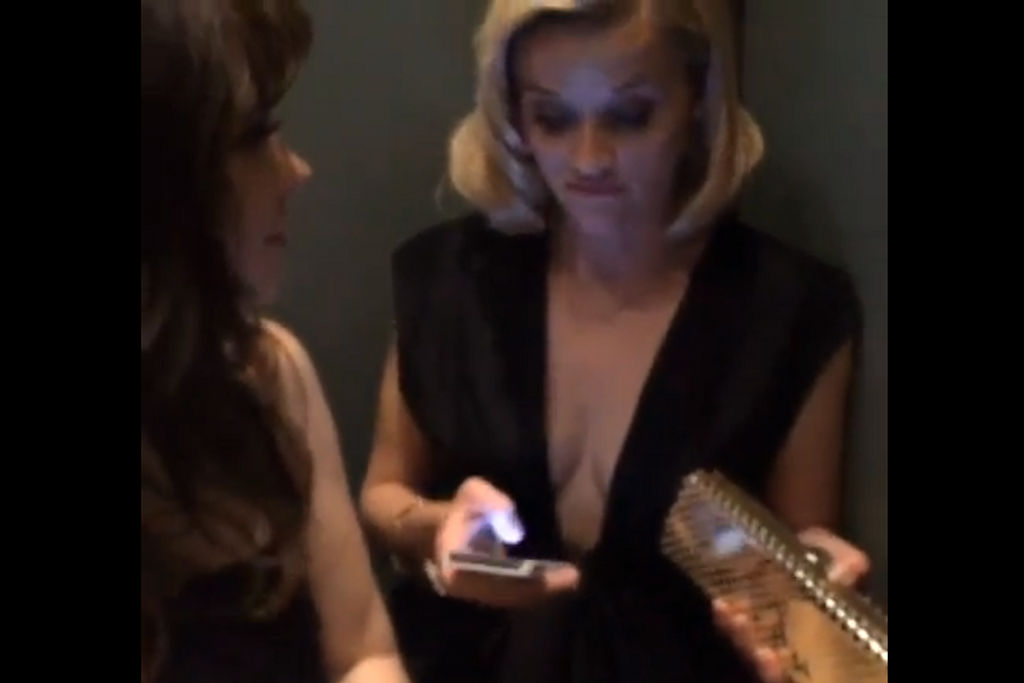If ‘Home Again’ Is The Return Of The 2000s-Era Rom-Com, I Am Totally Here For It
Reese Witherspoon is a majestic throwback to 2001.

Last week Home Again opened in Australian cinemas. The film, written and directed by Hallie Meyers-Shyer (daughter of veteran romance filmmaker Nancy Meyers), stars Reese Witherspoon in her first rom-com role since 2012’s unqualified disaster This Means War.
Before that film, Witherspoon made her name in part by helming two of the world’s favourite early-2000s romantic comedies: Legally Blonde and Sweet Home Alabama. It’s not 2001 anymore, but Witherspoon’s name is still synonymous with what many of us consider to be the rom-com’s Golden Age.
Light, flirty and escapist, films like Sweet Home Alabama, Nora Ephron’s When Harry Met Sally and Richard Curtis’s Notting Hill are few and far between in the current cinema landscape. When I searched “rom-coms 2016”, Google gave me a truly bizarre collection of quasi-romantic movies, including Marvel’s Deadpool. There just isn’t much of a blueprint for a rom-com in 2017.
So it seems odd that Meyers-Shyer’s Home Again returns so confidently to the comforting tradition of the 2000s rom-com. The story is so zanily high-concept, Witherspoon sparkles with that screwball zest that was a prerequisite for film stars in the early 2000s, and the world is so technicolour and bouncy (and, well, white/rich).
The film is wildly out of place in this year’s release schedule. And it got me wondering — after I was done smiling at its joyous, ridiculous escapism — whatever happened to the rom-com, anyway?
Three Men, One Reese And An LA Mansion
Look, I loved Home Again a lot, but it’s not exactly going to set the world on fire with its inventiveness. Though the concept certainly is novel.
Alice (Witherspoon) has just moved back to her late father’s very large, stylish and seriously Nancy Meyers-ish house in LA, with her two daughters, after separating from her husband (Michael Sheen doing his best skeevy dude). She’s trying to set up a new business as an interior designer; she’s helping her anxious daughter prepare for life in a new school; and she’s got the blues over her separation from her music executive husband. She’s got White Lady Problems!
Along comes Harry (Pico Alexander), George (Jon Rudnitsky) and Teddy (Nat Wolff), three filmmakers struggling to breakthrough in Hollywood. On a night out for Alice’s birthday, she meets the three young men and clicks with Harry (the lothario), so invites them back to her mansion to party. And they just… never leave. Instead, they move into her guest house and help her run her business and care for her daughters.

I know, it’s bonkers. But it’s so great! Witherspoon connects with each man on a totally different level — Harry is her lover, George her confidante and Teddy her surrogate son — and Home Again reaches for Alice to reclaim her life as a woman first, and a wife and mother second (a theme as common in all Nancy Meyers films as a luxurious kitchen).
I was charmed and oddly invigorated watching Home Again, even though I could see where the film fell back on old 2000s rom-com tropes — the luxurious setting, the meet-cute, the slapstick hijinks and the grand gestures. I did do a double take at how incredibly white the faces on the screen were (unusual for a film in 2017), and at how class-exclusive the film’s problems were, but what’s more early 2000s than Rich White People Problems? That’s certainly one aspect of the genre we don’t want returning.
Nevertheless, despite how many tropes Home Again adopts and nurtures (or, very occasionally, inverts), it feels refreshing because we simply don’t see many Golden Age rom-coms at the cinema anymore.
The film also happens to be an excellent vehicle for Witherspoon, who has been enjoying a renaissance of sorts after her excellent work in HBO’s critically acclaimed series Big Little Lies, which Witherspoon also co-produced with Nicole Kidman. Witherspoon is just such a warm, inviting and appealing actress; sure, she’s blonde, bubbly and beautiful, but she’s also sly and sharply comedic, with some of the best comedy timing in the biz. She’s the only sort of actor who could turn the ditzy, brassy Elle Woods into an intellectual girl’s hero.
I’ve missed this glossy, likeable version of Reese, and Home Again understands — as well as it does the gauzy trappings of the 2000s escapist rom-com — how valuable this version of Reese is on the big screen.

Is it surprising this film has popped up in 2017? Yes, but perhaps it shouldn’t be, considering how quickly our culture takes to any reanimated nostalgia. It makes sense that the Golden Age rom-com, which in the early 2000s produced sure-fire box office fireworks, would make a triumphant comeback when Hollywood will try just about anything again to see if it yields the same results it did decades before.
So, if the rom-com did “die”, as so many outlets predicted in the early twenty-teens, perhaps we can consider Home Again a signal of its zombie reawakening?
The Death Of “The Death Of The Rom-Com”
In an epic Ringer podcast, inspired by Home Again earlier this year, Amanda Dobbins and Shea Serrano theorise that the traditional format rom-com (ie post-When Harry Met Sally) was dead by around 2006. But I sincerely think This Means War, in which Witherspoon plays an ingenue being fought over by two CIA agents/best friends (played by Chris Pine, pre-Oscars-crying-cuteness; and Tom Hardy, pre-Revenant intensity) is what killed the genre of film for good. The film is so dull, so asinine, and such a woeful misuse of the charming Witherspoon, it’s near egregious.
This Means War was every bad rom-com trope stuffed into a stretched sausage casing until it was bursting pink mince at the seams. It had a frumpy but secretly beautiful lead, heinous best friend (played by an unpalatable Chelsea Handler in the role that proves she should absolutely never act in a film again), love triangle, high concept hijinks. It’s all in there but somehow none of it works.
Because, really, the formula of the rom-com is what gives it its easy charm and considerable appeal (at least to those of you who have made it this far through this article). The central couple meet, and something (usually intense initial dislike of each other) keeps them apart until some radical twist allows them to see why they’re perfect for each other. BAM, grand gesture, kissing in the rain, and the couple is united. Tears flow on the couches at home.
In the years following This Means War, the rom-com declined in popularity and soon it was box office poison. Studios were no longer interested in playing to the crowds of women who still fronted up at the cinema; instead, they played to the striaght men who were dragged along by their female partners, the thinking being: women will see anything (even an action blockbuster) to keep their men happy. And as the rom-com slid into a decrescendo, and the quippy action blockbuster rose in esteem with budget-busting Transformers, Marvel and DC movies, the hot takes rolled out.
The Rom-Com Is Dead, online entertainment outlets everywhere declared. No longer a box-office stalwart, or the comfortable, cruisey home for the Hollywood star looking for an easy win, romantic comedies were well and truly off the menu. But these large declarative statements forgot to take into account one important factor: the rise of television.
See, the rom-com never really died; actually, it moved to TV. Mindy Kaling’s The Mindy Project (now entering its final season on Hulu, though it began on Fox), FXX’s You’re The Worst, Rachel Bloom’s Crazy Ex-Girlfriend, Aussie favourite Offspring, Aziz Ansari’s Master Of None, Judd Apatow’s Love, under-appreciated British import Catastrophe and more — the rom-com moved to the slate where there were longer storylines, bigger writers’ rooms, greater consideration from creators, and higher profiles with better (smarter, more targeted) critical attention than the movies were ever likely to get them.
Savvy film studios also learned how to repackage the rom-com — which many now consider to be dated — to make it appear more palatable. The rom-com was buried in action franchises, or sold as prestige Oscar bait. It became an almost-Oscar-winning musical, countless sex comedies, and is still reliably fertile ground for most smaller independent films created by the likes of the Duplass Bros, Joe Swanberg, Noah Baumbach and Gillian Robespierre (Obvious Child is my favourite rom-com of the past decade).
So it’s interesting that Hallie Meyers-Shyer’s Home Again has entered the fray in 2017, among the Marvel movies and game board reduxes, as such a confident return to the old format of the rom-com. Simple, escapist fun, aimed directly at women (and created in large part by them), without any shame about what it is and who it serves. And that is exactly what makes the film so unabashedly impressive — its determination to be what it is with no residual embarrassment.
And I’ll just say this: going to the cinema these days can be an utterly dire experience. Movies are too long, they’re full of men who are disgusting, and they’re largely creatively bankrupt. If Home Again is the return of the Golden Age rom-com, I am one trillion percent here for it.
—
Home Again is in cinemas now.
—
Matilda Dixon-Smith is Junkee’s Staff Writer. She tweets at @mdixonsmith.

